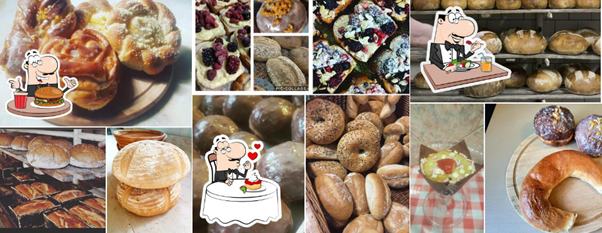Poland boasts a rich history of bread making, with each region boasting unique flavors and traditions. But beyond deliciousness, bread acts as a symbol of community, sharing, and nourishment. This article explores how innovative social enterprises in Poland are breaking bread together to create positive social change.
From Oven to Opportunity:
- Piekarnia Manufaktura (Manufaktura Bakery): Nestled in Warsaw, this bakery empowers individuals with disabilities. Their skilled staff crafts delicious breads using traditional methods and locally sourced ingredients. Beyond their delectable offerings, Piekarnia Manufaktura provides invaluable training and work opportunities, fostering independence and confidence in their employees. Imagine the joy of breaking bread freshly baked by those who found purpose and community through this social enterprise.
Social Fermentation:
- Społeczna Piekarnia Chlebem i Solą (Social Bakery Bread and Salt): Located in Krakow, this breaking bread bakery with a heart of gold is run by the Franciscan Sisters of Charity. Their mission is to offer not just bread but a path towards a better life. They provide training and employment for individuals experiencing homelessness or social exclusion. The aroma of freshly baked bread transcends the bakery walls, wafting hope and opportunity to those in need. Społeczna Piekarnia Chlebem i Solą also donates bread to those facing food insecurity, ensuring everyone can break bread together.
Beyond the Examples:
The Piekarnia Manufaktura and Społeczna Piekarnia Chlebem i Solą represent just a slice (pun intended) of the social enterprises baking change in Poland. Let's explore some additional ways these enterprises are using bread as a force for good:
- Preserving Heritage: Some social enterprises rediscover and utilize forgotten Polish grains, like spelt (pełzi pszenica) or einkorn (orkisz), ensuring these time-tested flavors continue to grace Polish tables.
- Sustainable Loaves: Environmentally conscious social enterprises prioritize organic or biodynamic ingredients and focus on sustainable production methods, ensuring their bread nourishes not just people but the planet as well.
- Building Bridges with Farmers: Certain social enterprises work hand-in-hand with local farmers, sourcing fresh ingredients like rye flour (mąka żytnia) and poppy seeds (mak) and fostering a more equitable and sustainable food system. By supporting local farmers, they create a ripple effect of positive impact throughout the community.
A Loavesome Legacy: Traditional Polish Breads
Poland's diverse landscape is reflected in its rich tapestry of breads. Here's a glimpse into some regional specialties:
- Chleb Żytni (Rye Bread): A staple across Poland, rye bread offers a robust flavor and dense texture. Often baked in sourdough starters (zakwas), it's known for its long shelf life and health benefits.
- Chleb Pszenny (Wheat Bread): Lighter and fluffier than rye bread, pszenny is often enjoyed with sweet toppings or used for sandwiches.
- Bułka (Bread Roll): A versatile option, bułka comes in various shapes and sizes, perfect for breakfast or on-the-go snacks. Poppy seed rolls (bułki z makiem) are a particular favorite.
- Pączki (Polish Doughnuts): While not strictly bread, these fluffy, deep-fried pastries filled with jam or fruit are a beloved Polish treat, especially during Fat Thursday (Tłusty Czwartek).
Call to Action
These social enterprises are more than just bakeries; they're beacons of hope, opportunity, and community. By supporting these businesses, we can all be a part of breaking bread together, fostering social inclusion, and celebrating the rich Polish tradition of bread making. Here are some ways to get involved:
- Seek Out Social Enterprise Bakeries: Look for social enterprise bakeries in your local area or when traveling to Poland.
- Spread the Word: Share stories and information about these social enterprises with your friends and family.
- Consider Volunteering: If you have the time and skills, volunteering at a social enterprise bakery can be a rewarding experience.
By making conscious choices and supporting social enterprises, we can all contribute to a future where bread continues to be a symbol of not just sustenance, but of community, opportunity, and a shared future.

